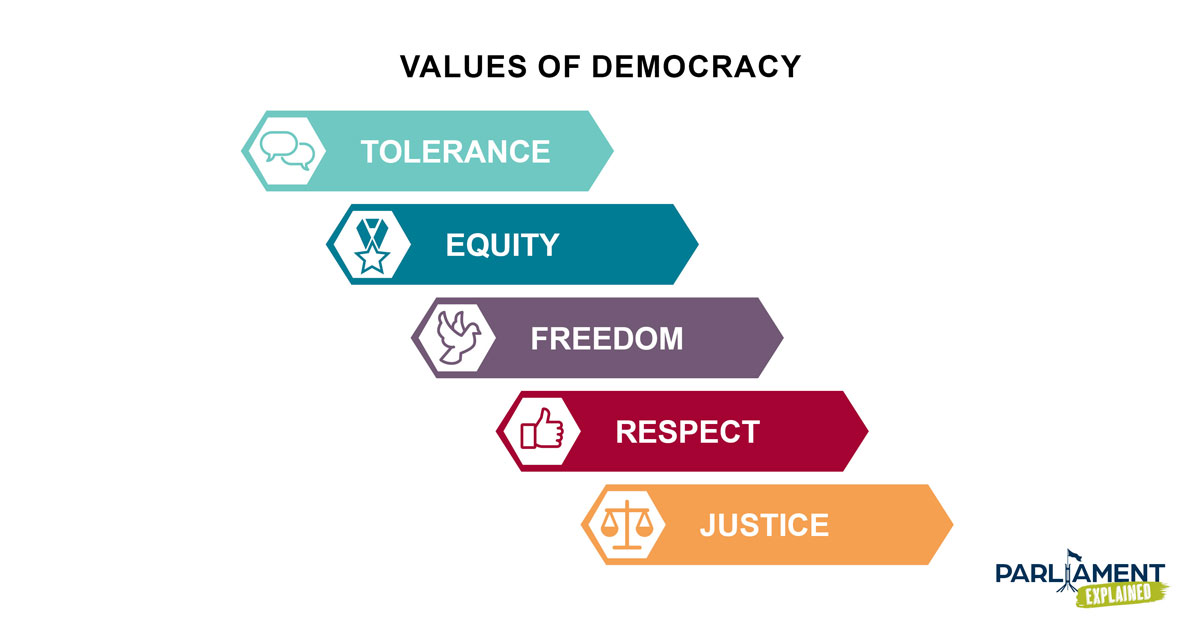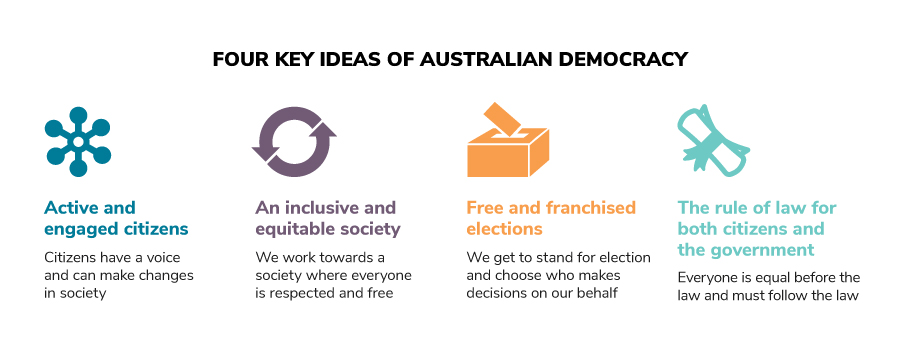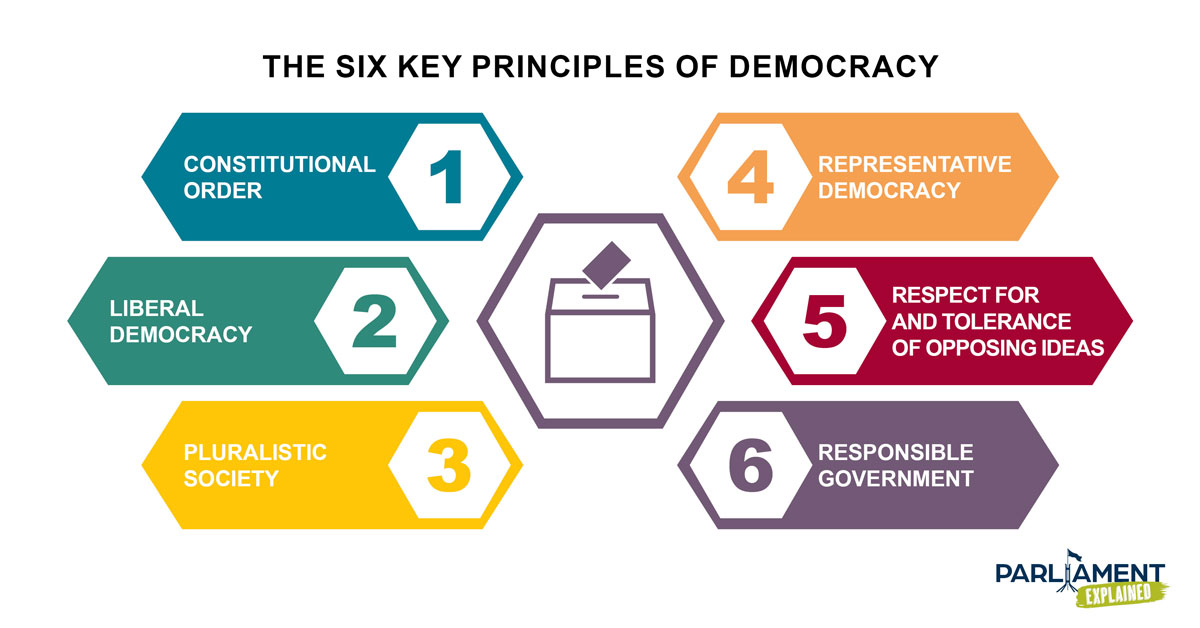What is democracy?
Democracy means ‘rule by the people’. The word comes from the ancient Greek words ‘demos’ (the people) and ‘kratos’ (to rule).
In a democracy, the people have the power to participate in decision-making, such as voting at elections.
Each democracy is unique and works in different ways. In Australia, citizens choose representatives to make decisions on their behalf (this is called a ‘representative democracy’).
What are the values of democracy?
There are five key values of democracy:
- Respect for individuals and their right to make their own choices.
- Tolerance of differences and opposing ideas.
- Equity—valuing all people and supporting them to reach their full potential.
- Each person has freedom of speech, association, movement and freedom of belief.
- Justice—treating everyone fairly, in society and in court.

Australian democracy

Image courtesy of the Parliamentary Education Office (peo.gov.au).
Six key principles of Australian democracy
There are six key principles of Australian democracy:
- Constitutional order—the structure and powers of the Australian Parliament are written in the Australian Constitution, which also describes the power of the High Court of Australia to decide if laws abide by the Constitution.
- Liberal democracy—as a nation, we support the development and well-being of individuals.
- Pluralistic society—Australian society is diverse, with many different ethnic, racial, religious and social groups all living together.
- Representative democracy—eligible citizens elect members of parliament to make decisions and laws on their behalf. If citizens do not think their representatives are doing a good job, they can vote for new ones at the next election.
- Respect for and tolerance of opposing ideas—in the Parliament, issues and new laws are debated and the Australian Government is questioned about its work to make sure it is accountable to the Australian people. In society, listening to different points of view and the voices of minorities strengthens our democracy.
- Responsible government—to be in government, a party or coalition of parties must have the support of the majority of members in the House of Representatives. This makes sure the Australian Government is accountable to the Australian Parliament and through the Parliament, accountable to the people.

Benefits of our democracy
Some benefits of our democracy include:
- There are ways to resolve different views and conflicts peacefully.
- Respect for human dignity.
- The freedom to act, speak and think freely (as long as it does not stop others doing the same).
- Equality before the law.
- A safe and secure community.
- Good government that is efficient, transparent, responsive and accountable to citizens.
- The ability to hold elected representatives accountable.
Want more information?
The Parliamentary Education Office develop and maintain resources to educate Australians about, and inspire their enthusiasm for Australia’s parliamentary democracy. Check out their resources on their website.
Parliament Explained series
Across the next six months, the About the House team is exploring the topics such as: democracy, federation, government and parliament.
Follow our series on our Facebook Page.